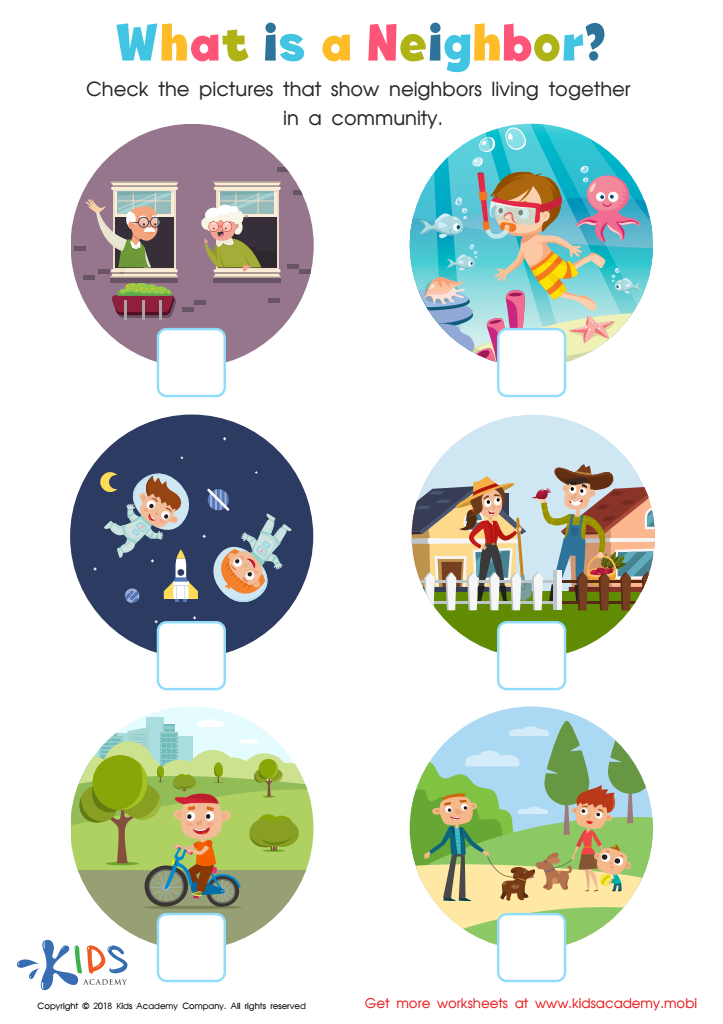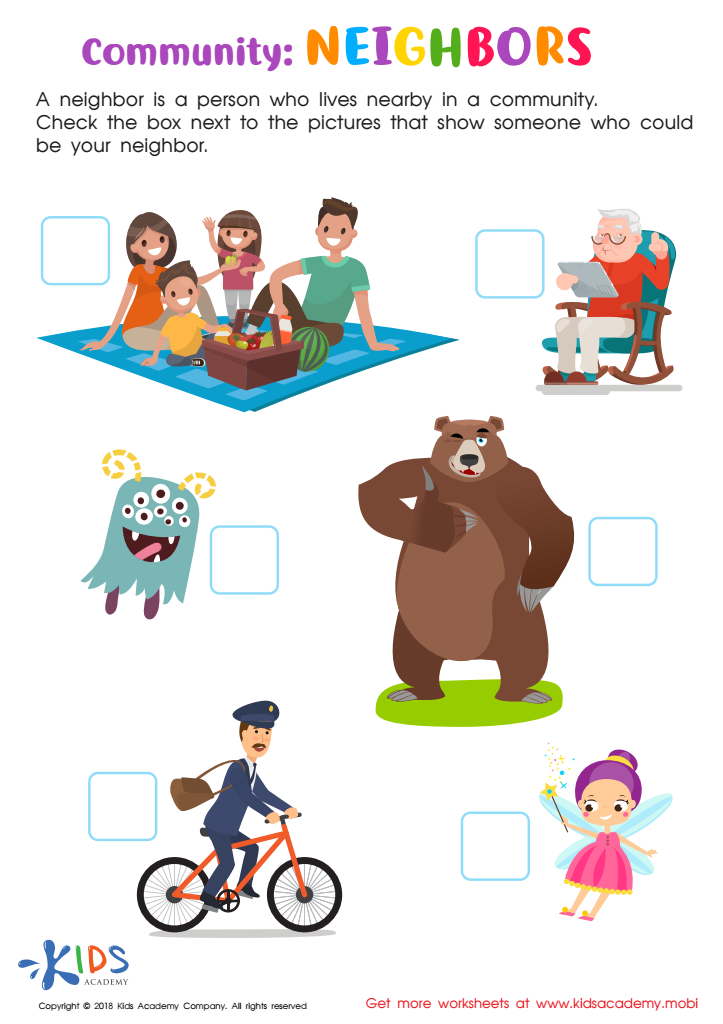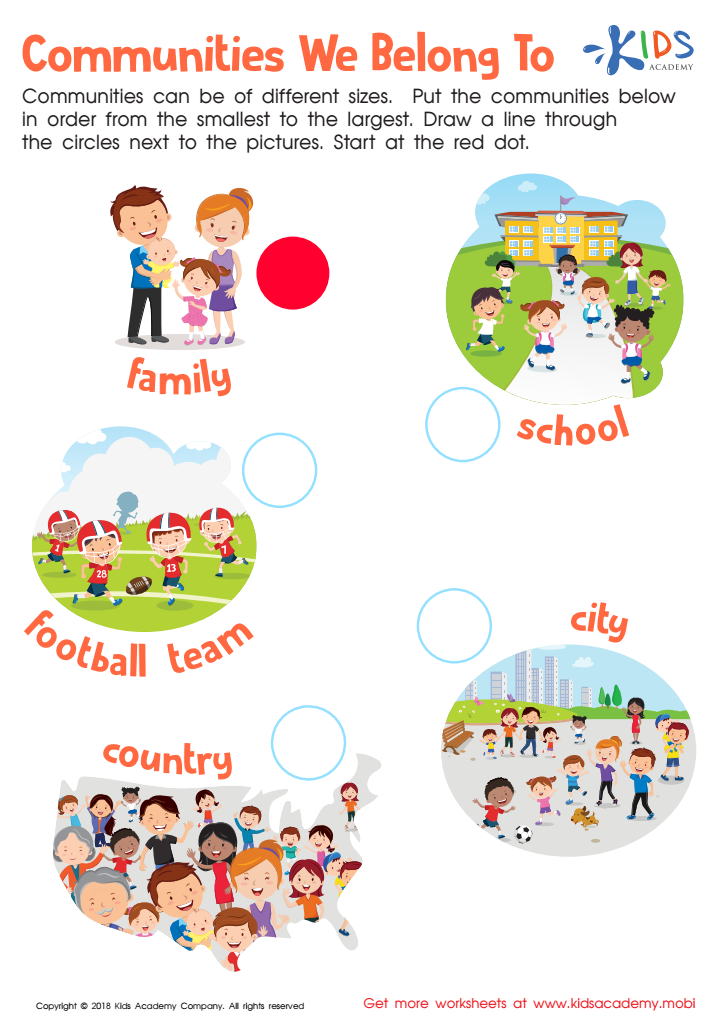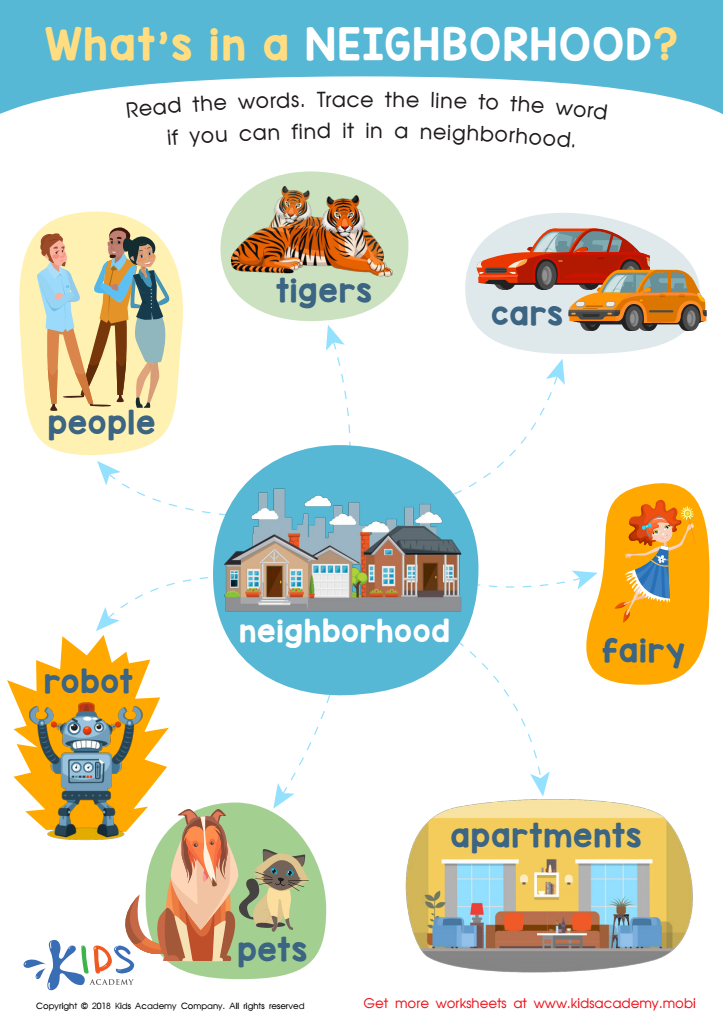Understanding communities Normal Community Worksheets for Ages 6-9
4 filtered results
-
From - To
Explore the "Understanding Communities" worksheets designed for children aged 6 to 9 on Kids Academy’s website. These engaging worksheets provide essential learning skills within the context of social studies, helping young learners to discover the diverse elements that form a community. Through interactive lessons, kids learn about different types of communities, the significance of roles within them, and the importance of cooperation. Perfectly tailored for developing minds, these worksheets encourage curiosity, foster social understanding, and equip kids with knowledge about their own place in the world. Ideal for teachers and parents striving to cultivate empathetic, informed community members.


What is a neighbor Worksheet


Community: Neighbors Worksheet


Communities We Belong to Worksheet


What's in a Neighborhood? Worksheet
Understanding communities is essential for children aged 6-9 because it helps lay the foundation for their social and emotional development. At this age, children are beginning to explore the world outside their immediate family and starting to appreciate the roles and relationships that structure society.
By learning about communities, children gain important insights into how people live and work together harmoniously. This knowledge fosters a sense of belonging and teaches children to value diversity, cooperation, and respect. It also helps children understand the concept of responsibility and the importance of contributing to the common good, whether it's keeping the classroom tidy or participating in family chores.
For parents and teachers, fostering an understanding of communities can cultivate empathy and social awareness in children. It encourages them to recognize and appreciate differences among people, countering prejudice and fostering inclusivity. A child who learns to understand and respect community dynamics is more likely to be compassionate, engage in positive social behavior, and effectively communicate with others.
Moreover, understanding communities equips children with practical skills such as navigating various social situations and solving problems collaboratively. This foundation not only enhances their current relationships but also prepares them for future interactions in more complex social, educational, and work environments. Simply put, it's a cornerstone for nurturing well-rounded, socially responsible individuals.

 Assign to My Students
Assign to My Students
















